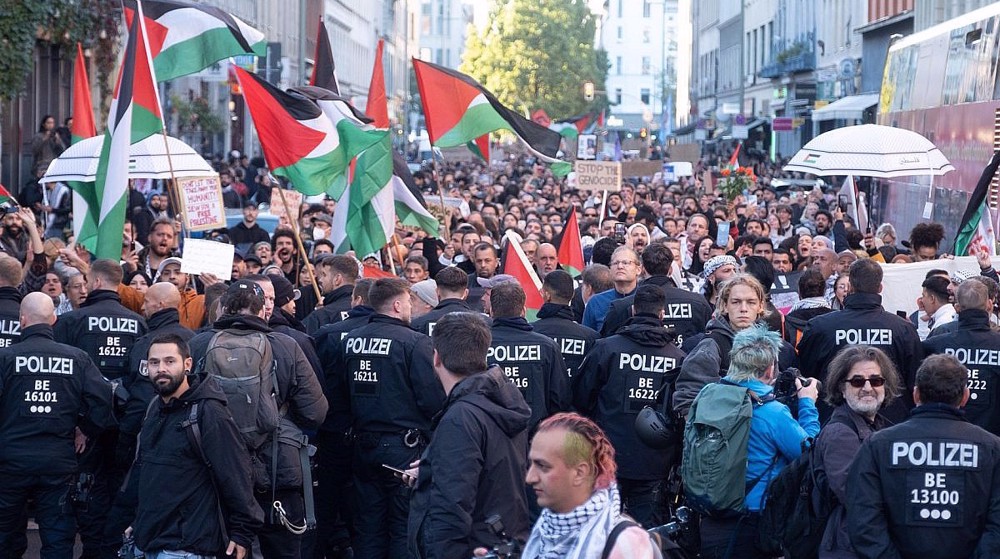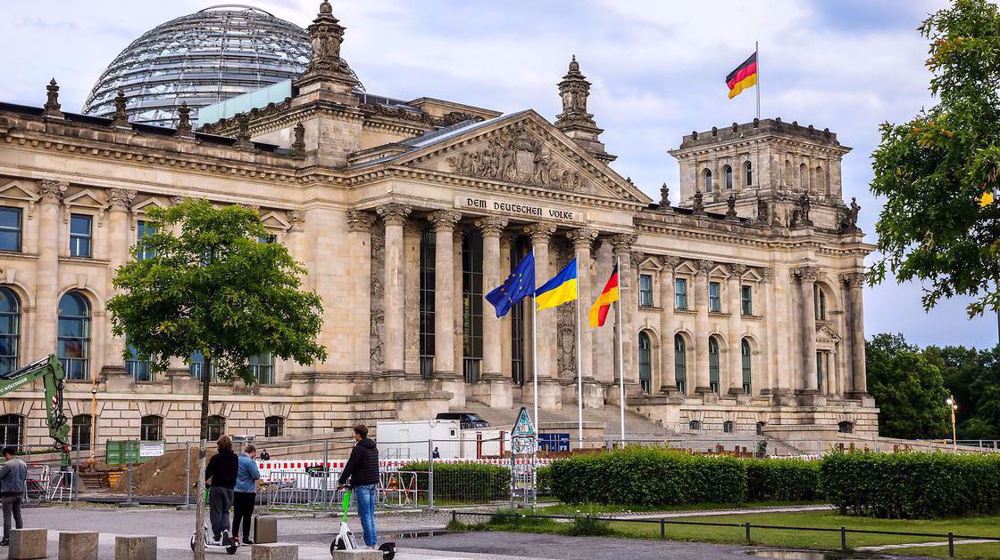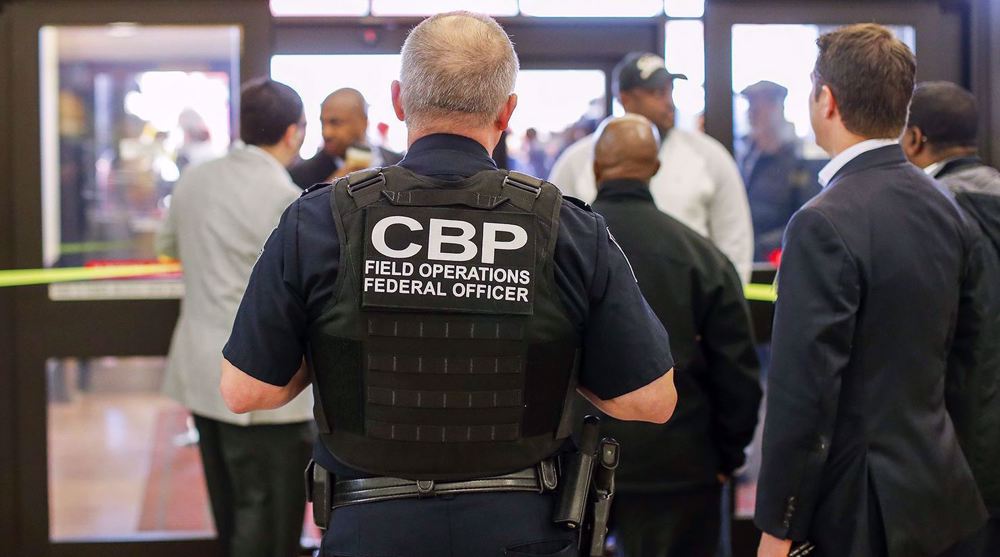Sanctions against Russia over Syria possible: Germany
Measures against Russia over the deadly conflict in Syria remain on the table, German Chancellor Angela Merkel has said ahead of talks between leaders from the two countries in Berlin.
Speaking at a news conference after meeting Panamanian President Juan Carlos Varela in Berlin on Tuesday, Merkel said she and France's President Francois Hollande will discuss Syria with Russian President Vladimir Putin on the sidelines of a planned meeting on Ukraine on Wednesday.
"Given this situation, I believe no option - including that of sanctions - can be taken off the table,” she said.
The German chancellor further cautioned against expecting "miracles,” adding, however, that “talking is always necessary, even when opinions are a long way apart."
Syria has been gripped by foreign-sponsored militancy since March 2011. Moscow has been conducting airstrikes against Daesh and other terrorist groups in Syria at the Damascus government’s request since last September.
Germany to host talks on crisis in eastern Ukraine
The leaders of Germany, France, Russia and Ukraine are expected to meet in Berlin on Wednesday evening to discuss the implementation of the Minsk peace plan to end the crisis in eastern Ukraine.
French Foreign Minister Jean-Marc Ayrault said the Berlin summit would aim to set a timetable for elections in the Donbass region - the self-proclaimed republics of Donetsk and Lugansk - and to focus on further military disengagement.
The negotiations will take place just over a year after the four leaders last met within the so-called Normandy Four format. The group has met periodically since June 2014 seeking to resolve the Ukraine crisis.
The government in Kiev and pro-Russia forces signed a ceasefire agreement in the Belarusian capital, Minsk, in September 2014.
The warring sides also inked another truce deal, dubbed Minsk II, in February 2015 under the supervision of Russia, Germany and France, after the first one failed to hold.
Since then, however, both parties have, on numerous occasions, accused each other of breaking the truce.
Poroshenko says not optimistic about Berlin meeting
Meanwhile, Ukrainian President Petro Poroshenko stressed that he does not have "very high expectations" for the discussions.

"Am I very optimistic? Yes. I am very optimistic about the future of Ukraine but unfortunately not so much about tomorrow's meeting, but I would be very happy to be surprised," Poroshenko told a joint press conference with Norwegian Prime Minister Erna Solberg in Oslo on Tuesday.
He also accused Moscow of violating its commitment to the Minsk agreement, claiming that "peace in Europe depends solely on Putin."
No agreement in sight: Kremlin
In another development, Kremlin spokesman, Dmitry Peskov, stressed that it was not possible to talk about any concrete agreements over Ukraine.
"Indeed, the security situation along the demarcation line leaves a lot to be desired, provocations are ongoing," Peskov said, noting, "Of course, all this does not promote the process of achieving the implementation of the Minsk agreements."
An unidentified European diplomatic source also opined that expectations were not high, but it was crucial to keep dialogue open, especially over Syria.
The self-proclaimed republics of Donetsk and Lugansk have witnessed deadly clashes between pro-Moscow forces and the Ukrainian army since Kiev launched military operations in mid-April 2014 to crush pro-Moscow protests there.
The crisis has left more than 9,600 people dead and over 22,400 others injured.

Germany set to deport four foreign pro-Palestine protesters

Germany unlocks €3bn for Ukraine as EU aid plan flounders

UK, Germany issue 'travel warning' for US amid increased detentions, deportations
Palestinian journalist dies from burns sustained in Israeli strike on south Gaza
Araghchi, Trump’s envoy Witkoff to hold ‘indirect’ talks in Oman: Report
Israel continues assault on West Bank’s Jenin as destruction campaign rages on
VIDEO | Trump claims ‘direct talks’ with Iran have started, more this weekend
Israeli protesters condemn resumption of Gaza war
VIDEO | Rally held in Damascus for Gaza, Dara'a
VIDEO | Press TV's news headlines
VIDEO | 37th march against NATO, US military bases takes place in Spain’s Rota












 This makes it easy to access the Press TV website
This makes it easy to access the Press TV website